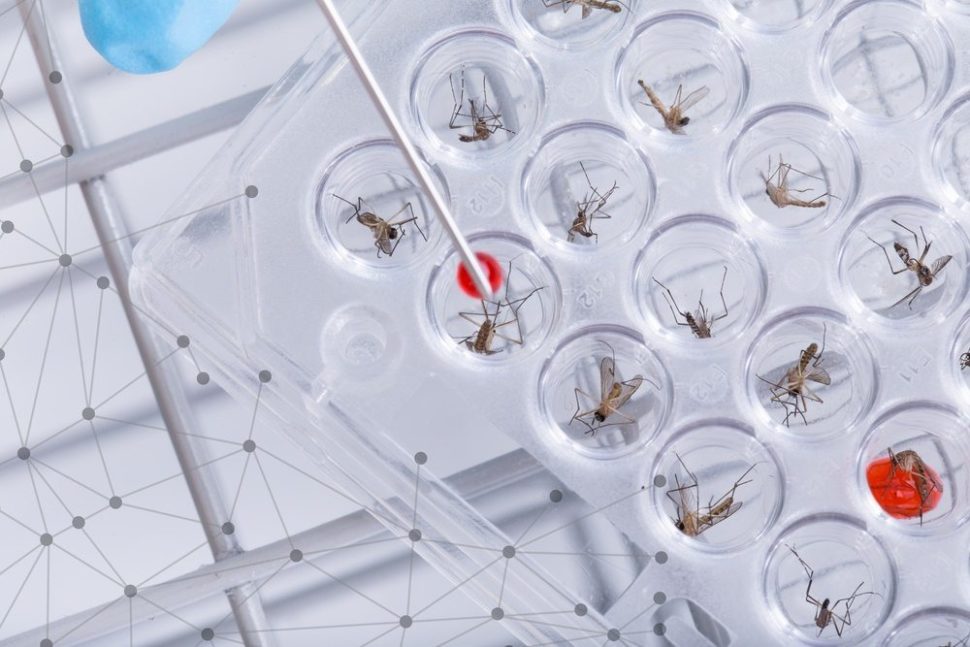Traditional anti-mosquito measures rely on widespread fumigation techniques in a method similar to the way that traditional antibiotics work. Aside from being harmful to humans and animals alike, fumigation actually expedites the target organism’s evolution by eliminating the weak candidates and leaving only the strongest survivors.
British company Oxitec aims to seriously reduce mosquito-borne diseases using a different approach altogether.
Meet Aedes aegypti, an ordinary mosquito species well-adapted to city life and known to carry pathogens like Zika, Dengue, Yellow Fever and Chikungunya. Like the infamous Roman politician Brutus, these mosquitoes will be tasked with turning on their own.
“What we do here is eliminate the mosquitoes, which transmit the virus.” -Karla Tepedino
Eliminate the Vector, Eliminate the Disease
The technique developed by Oxitec deploys Laboratory-bred, “mutant” male Aedes aegypti mosquitos that mate with normal females in the wild. As a result, both the father and the offspring are genetically programmed to die abnormally early.
A single factory located near Sao Paulo, Brazil (which Oxitec president Hadyn Parry says is the first and largest of its kind) is capable of producing 60 million mutant mosquitoes in one week.
Oxitec biologist Karla Tepedino explains that “there are three essential factors for the transmission of these diseases: the mosquitoes, the virus, and humans. What we do here is eliminate the mosquitoes, which transmit the virus.”
She added that by”eliminating the vector, we eliminate the disease.”
Lukewarm Results
Wild Aedes aegypti populations dropped by 90 percent following tests conducted in tropical zones like Panama, the Cayman Islands, and northeastern Brazil from 2011 to 2014.
However, Brazil’s Anvisa authorities have not yet granted Oxitec a sales permit.
Additionally, there is currently a lack of epidemiological information to show a clear drop in diseases carried by mosquitoes following the release of genetically modified males.
Off the (Food) Chain
While Oxitec’s plan promises obvious benefits to human beings and other organisms susceptible to infection from mosquito-borne diseases, there are still concerns or potential ecological ripple effects.
First, many organisms rely on mosquitos for food, making them a fundamental link in the food chain. What might a severe decrease in mosquito populations do to the insect’s natural predators specifically, and the food chain as a whole?





Comments (0)
Least Recent